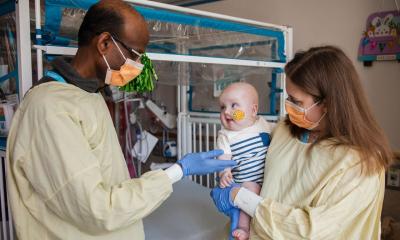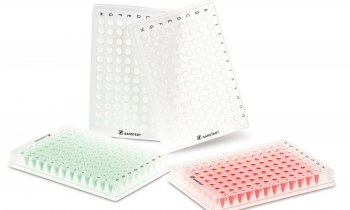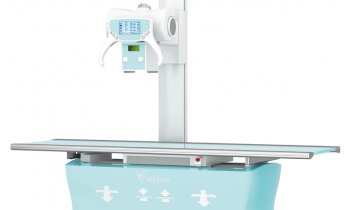Image source: Unsplash/National Cancer Institute
News • DNA analysis
Should all babies have their genome sequenced at birth?
Genomics England, a government owned company, recently announced a pilot programme of whole genome sequencing to screen for genetic diseases in 200,000 healthy seeming newborns. But should every newborn baby have their whole genome sequenced? Experts debate the issue in The BMJ.
Extensive clinical evidence has shown that screening for genetic diseases saves lives, and research has shown that it can be cost effective, say Leslie Biesecker and colleagues at the US National Human Genome Research Institute. Routine genome sequencing in newborns will eventually happen, they write, but rather than screening newborns for all diseases, they advocate a phased rollout, where the genome sequence is generated at birth and over time, variants are disclosed sequentially at appropriate ages to help reduce the burden of genetic disorders. Such a rollout of genomic information should be guided by oversight bodies, with informed consent and appropriate opt-outs, they explain. It should also reside in a repository linked to his or her medical record, readily accessible to healthcare providers and available for reanalysis to keep pace with growing knowledge.
To realise the anticipated benefits of routine newborn genome sequencing, they say progress is needed in several areas including data quality, appropriate information management and clinical decision support systems. But they reject the call for all non-genetics healthcare professionals to be extensively trained in genetics and genomics as “impractical and unnecessary.”
Only by sequencing the entire genome of a person early in life can the full potential of genomic diagnosis be realised, they say, providing opportunities to make diagnoses more quickly and accurately and to bring targeted and gene based therapies to the bedside with minimal delay. “By embracing a health ecosystem that offers universally available routine newborn genomic screening, we can maximise learning to ensure that the benefits of genomics reach the broadest range of people, minimising disparities and bringing greater health to all,” they conclude.
There is no justification for assessing the risk of future health problems in newborn babies without their consent
David Curtis
But David Curtis at University College London argues that a person’s genome is a vast quantity of personal data, and no grounds justify routinely acquiring this from all citizens before they are old enough to have the capacity to provide informed consent. He points out that only a tiny number of genetic conditions require action before an individual is able to consent to screening, and processes already exist to test newborns for these rare but serious conditions.
Genome sequencing can also provide information about the risk of developing many conditions for which no specific intervention is available, he explains. But even if some adults are interested in obtaining this risk information, “there is no justification for assessing the risk of future health problems in newborn babies without their consent.” He cites examples where newborn genome sequencing might be of benefit to wider society, but again says this “cannot be used as a justification for sequencing babies’ genomes.” And he raises concerns that our most personal data might be misused, noting that some governments are reportedly carrying out mass collection of DNA, with the potential to use it for repressive practices up to and including forced organ harvesting.
So, why should we be contemplating genome sequencing of babies, who have no say in the matter, when as a society we have not agreed that all adults, for whom the potential health gains seem much greater, should undergo this process, he asks? Let us first answer the question, “Should all adults have their genome sequenced?” If the answer is no (as mine is), then we should restrict medical testing of newborns to the small number of conditions for which it is agreed that testing provides a real benefit to them,” he concludes.
Source: BMJ
17.11.2021











